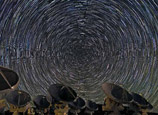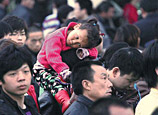
The quality of water supply in southern Beijing has been improving in recent years, an official said.
In addition to improvements in the network of pipes, the government has been upgrading three recycled water plants in the south of the capital, said Zhao Lei, spokesman for the Beijing Municipal Commission of Development and Reform.
"The transformation of the three plants has increased the recycled water processing capacity by 160,000 cubic meters per day," he said.
In addition, the city is also speeding up the construction of sewage treatment plants to further recycle the sewage, Zhao said.
Zhang Xiang, a researcher from Nature University, an environmental protection NGO in Beijing, said recycled water use should be promoted, especially in water-scarce cities such as Beijing.
Setting up more recycled water plants in the capital will not only promote efficient water use, but also reduce costs because recycling water is much cheaper than transferring it over long distances, he said.
According to the Beijing Water Authority, the capital will set up 46 more recycled water plants citywide in the next three years while upgrading 20 sewage treatment plants.
The treatment rate of domestic sewage in downtown Beijing will reach 98 percent by the end of 2015, it said.
The capital's recycled water is mainly used for industry, landscaping and cleaning, Zhang said.
Many new communities in southern Beijing are equipped with a network to recycle water.
In the past, people were not enthusiastic about using recycled water. However, as the government has boosted the quality of recycled water and set up more recycled water plants, more residents are gradually accepting it.
Residents in southern Beijing will also enjoy more clean energy, as the government will replace traditional coal-burning stoves with electric radiators as part of a three-year plan to develop southern Beijing from 2013 to 2015.
















 Villagers express condolence to death of retired CPC chief of Huaxi Village
Villagers express condolence to death of retired CPC chief of Huaxi Village


![]()
